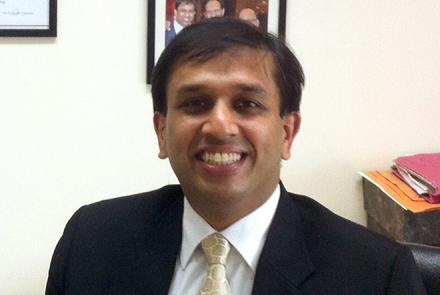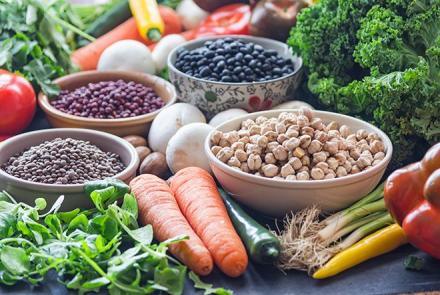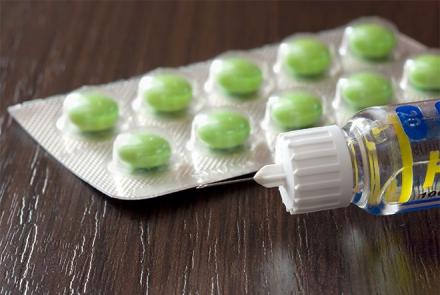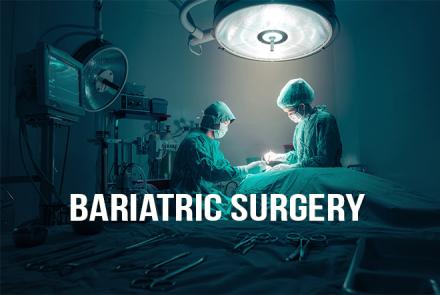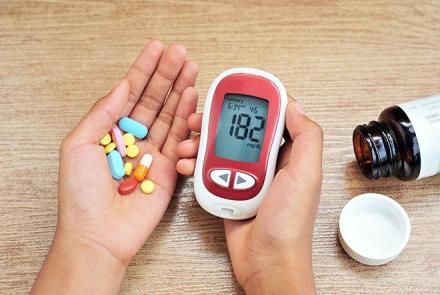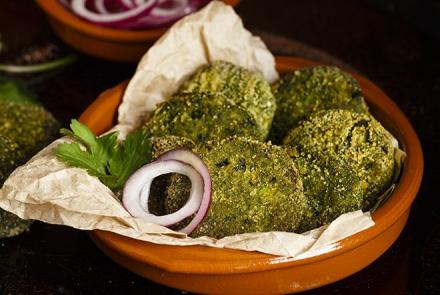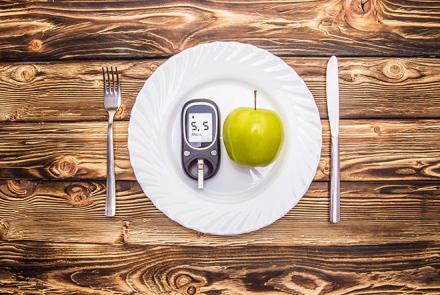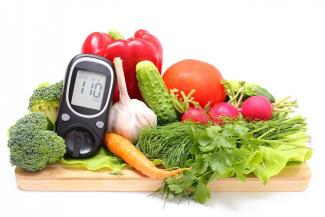
Advises Dr Kalyani Nityanandan, veteran cardiologist, who comes across many patients with heart disease and diabetes. In her own style with a tinge of humour, she shares valuable strategies for meals and medicines to help patients manage blood sugar well.
He is a very sweet man, and his wife is even sweeter. Unfortunately this "sweetness" does not refer to their disposition but to the unusually high sugar level in their blood. Yes, they both have diabetes.
Diabetes is a very old disease. Five thousand years ago, Indian physicians described it as "Madhu Meham" meaning sweet urine. The underlying mechanism of the common Type 2 diabetes is a combination of inadequate insulin production and an environment of insulin resistance in the body.
Testing for Diabetes
Diabetes is not just about blood sugar. It affects all the small blood vessels in the body. The important small blood vessels are in the eye, heart, kidneys, brain and toes. Long term poorly controlled diabetes affects these organs severely. Loss of eyesight, heart attacks, kidney failure, stroke, numbness of extremities and gangrene leading to amputation are the serious consequences we must fear. In particular, the intersection of diabetes with other cardio-vascular risks such as smoking or obesity can be really deadly.
Half of all Indians tend towards diabetes. But this is a lurking threat: it is discovered mostly by chance in India. An illness or a wound may not heal as well as it should, leading to the doctor ordering a blood sugar test. Less often, a medical check-up reveals it, such as those done for insurance. But by this time the patient is likely to have been diabetic for a couple of years.
The thought of a general check-up often arises around the age of 50. Blood sugar, blood pressure, cardiovascular condition, breast and pelvic examinations and a prostate investigation are recommended. But this is really too late to turn one’s attention to diabetes threat if there is a known family risk. If you are from a family with a history of diabetes, you should do the following from the age of 35 to 40.
- Test your blood sugar. This needs to be tested in two different states: after a period of fasting, and soon after ingesting foods that cause sugar impact (also known as post-prandial testing).
- Test your 90-day haemoglobin - This is known as the HbA1c% test, and is the most important for determining how well you are controlling your situation. It tells you how your blood sugar level has been averaging and varying in the past 3 months.
Repeat your tests every six months. This way, diabetes can be detected early, in the phase where impaired glucose tolerance shows itself interacting with the dietary habits, and before the onset of full-blown diabetes. With such early detection, the impact of diabetes can be delayed without medication by a change of diet and lifestyle.
Your doctor and the dietician will tell you about diet restrictions, but here are some useful guidelines:
- Control the quantities of starchy vegetables like potatoes, yams, sweet potatoes, tapioca and carrots. However yams, sweet potatoes, carrots are nutritious and are high fibre and have lower GI than regular potatoes. Manage portions accordingly.
- Root vegetables such as onions, garlic, radish and ginger are acceptable.
- Eat plenty of fibrous vegetables like greens, beans, cluster beans, ribbed gourd, white pumpkin, chow-chow, snake gourd. The stems and flower of the banana are also good choices. These fibrous items help slow down the movement of food through your gut. This causes the blood sugar to plateau instead of rising. Also, they are filling without a lot of calories.
Many do not agree with the principle of ‘No Sugar’. But all sweets get absorbed quickly and raise your blood sugar. The notion of "good sugars" like honey, brown sugar and palm sugar is a myth for diabetics. Yes, these foods are indeed “good " because of being unrefined and not processed as much but nevertheless they are sugar. Remember that, and stay away from arguments that non-diabetics will never understand.
Tips on diabetes lifestyle management
- Drop a third. If you just reduce your normal intake by 1/3rds at every meal, you will likely lose about 75 gms a day. Does this sound trivial? 75gms x 30 days is 2.25 kilograms that you will lose per month. It is not difficult to take two iddlis or naans instead of three. Reach for that glass of thin lassi and push that third mound of pongal away – your cells will celebrate!
- Raise your eating awareness. Try this trick to control your eating. Change your usual table habits to eat with an unusually small spoon or fork. After each mouthful, set the fork down beside your plate, and pick it up only after your mouth is empty. Even if you change nothing about your portions or menu choices, you will still win a victory; you will eat less food in 20 minutes for purely mechanical reasons. Why is 20 minutes significant? We have an "appetite" center in our brain which indicates satiation after 20 minutes. Have you noticed that if you are very hungry you gulp the food down quickly and are still hungry? This is because the appetite center has not detected you eating for the required 20 minutes.
- Crowd out the carbohydrates. Start with a large portion of vegetables and small amounts of rice or half a chappathi. Add the liquid curry, and as you eat keep adding more veggies and curry. After a while you will be done and you will have eaten less of the dangerous stuff.
- Put yourself on parole. A lifetime of bland eating is something depressing to contemplate, but most of us can handle a period of discipline if there is light at the end of the tunnel. Try to be very strict about avoiding forbidden foods until your sugar level is under good control, with the promise of a relaxation after that point. Be patient, it may take three months or more – but it is a worthwhile sentence to serve, and you may never feel like going back to your old ways.
- Ration out your indulgences. This applies after you have stabilized your situation and you are also confident about your will power. If you are "good” 80% of the time you can "deliciously" misbehave 20% of the time. For example, I buy 50 gms of milk halwa, which I love, once in 3 months. But enjoy it over 4 days, not at one gulp, since I have been a diabetic for 26 years.
- Maintain your schedule. Just as you take medicines at regular times you should also keep to your meal timings. If you have guests at home, don’t be afraid to put them on hold and feed them later if their presence interferes with your schedule.
- Exercise. Walking regularly is safe and has predictable benefits. If you can do more vigorous things like swimming or running please do.
Diabetes pills and insulin
Let us look at medications and managing them. You may hear that some patients are on tablets, while others need insulin injections. Why is this?
Insulin
Insulin is secreted by the pancreas about 20 minutes after you eat. As a protective self-balancing measure the body also produces an enzyme called insulinase, which destroys the excess or unused insulin. These two chemicals balance the blood sugar level and prevent steep changes.
Diabetes patients who have a serious lack of insulin need the injections. Your physician will prescribe the right one for you. There are also insulin "pumps" which can continuously release insulin. When the patient’s insulin deficit is mild, tablets may be prescribed. As time goes on less and less insulin may be produced, so such patients may have to change to insulin injections or a combination of tablets and injections.
Low blood sugar risks
Whether injections or tablets, all medications should be timed as prescribed relative to your mealtimes. With some discipline, this is easy to do when you are home. What should you do when travelling? The most important thing to remember is that diabetic medicine can cause dangerous drops in your blood sugar level. This is called hypoglycemia, and it is a much more immediate risk to your health than the high blood sugar that haunts diabetics through their lifetimes. So do not take medicine until you are absolutely sure that you have access to food. Wait till the food is in front of you on your plate. Take the medicine only if you know that the food presented is sufficient, edible and suitable to your diet. If in doubt, it is better to skip the medication. Why? Temporary periods of high blood sugar do not cause harm unless you have secondary issues like an infection. But don't make this a habit.
Whereas a stable low sugar level at 90 or less will only cause extra hunger and some heart palpitations, a rapid and large fall can cause serious effects like giddiness, sweating or even seizures. When this happens, an immediate intake of sugar can be a lifesaver. Always carry some sugar cubes when you travel. Sugary drinks also help in an emergency.
Do not cheat on medicines for diabetes
Never use medication as an enabler for bad behaviour. I cannot count the number of times I have heard of patients attending a marriage feast carefully limiting their feast of rice, pappads, parathas and chips, but then binging on jelabi and rasmalai at the end. Their excuse is, “I will go home and take an extra tablet.” I mentally hit my forehead!
Diabetes is an enemy that lives with you at home for ever, not a menacing two-week invasion like Covid-19. You can learn to live with the enemy safely if you understand him well, maintaining eye contact but keeping your distance as you would with a fire.
Live aware and you can live “sweetly”.

(Dr Kalyani Nityanandan, MD, was instrumental in bringing the first cardiac coronary intensive care unit to Tamil Nadu in 1969. Soon afterwards she started the state’s first cardiac rehabilitation facility. In later years she also pioneered the introduction of echocardiography in Chennai.)
3rd Sept 2022: With deep regret we wish to inform our readers that Dr. Kalyani Nityanandan passed away a few weeks back. We will always be grateful for her contributions to the PatientsEngage community.


